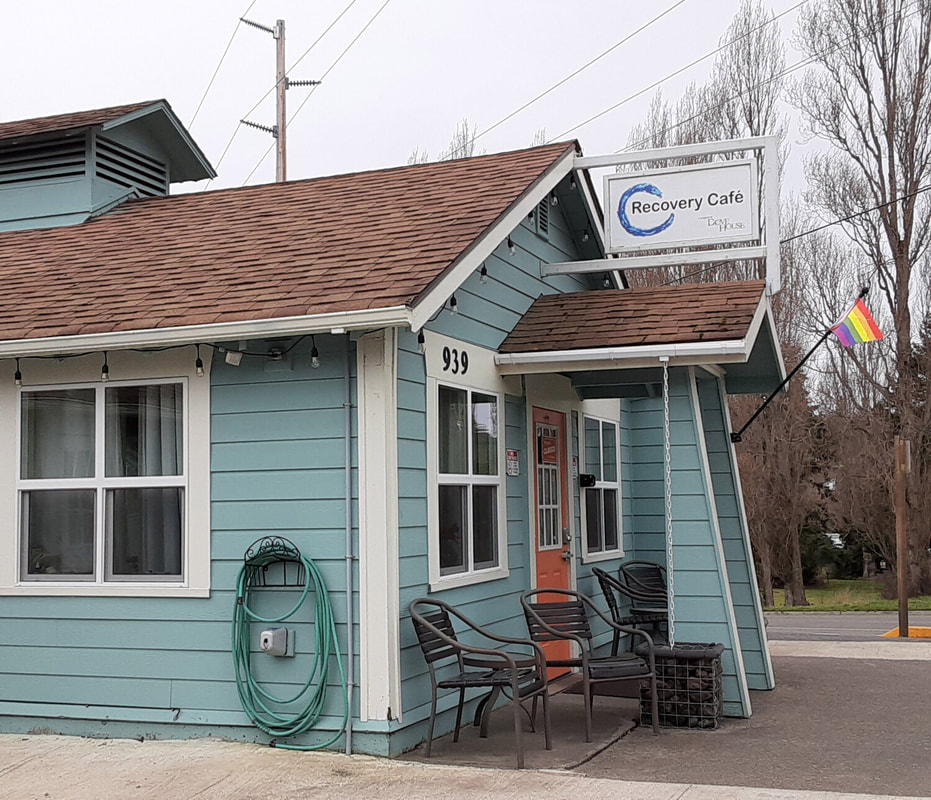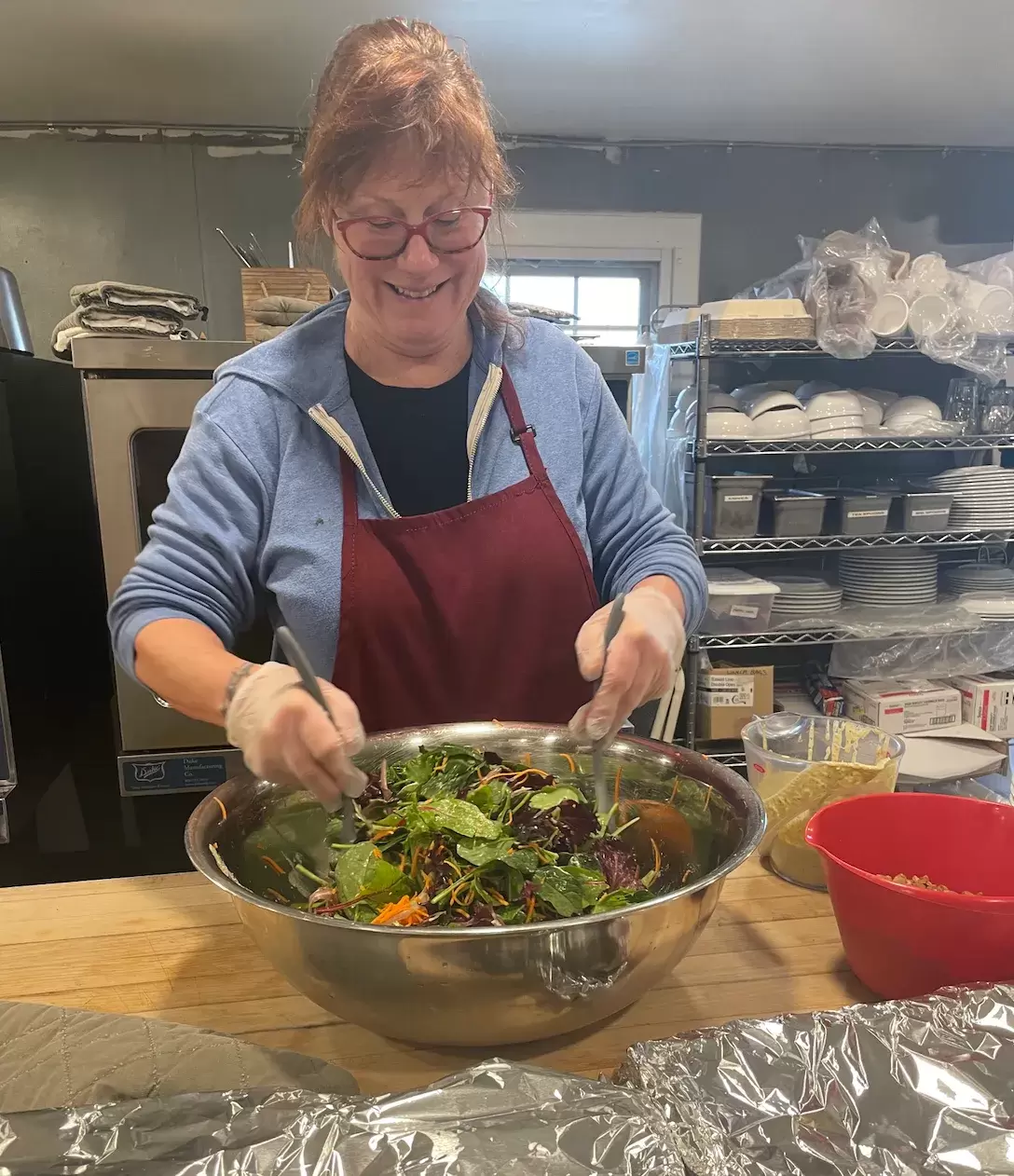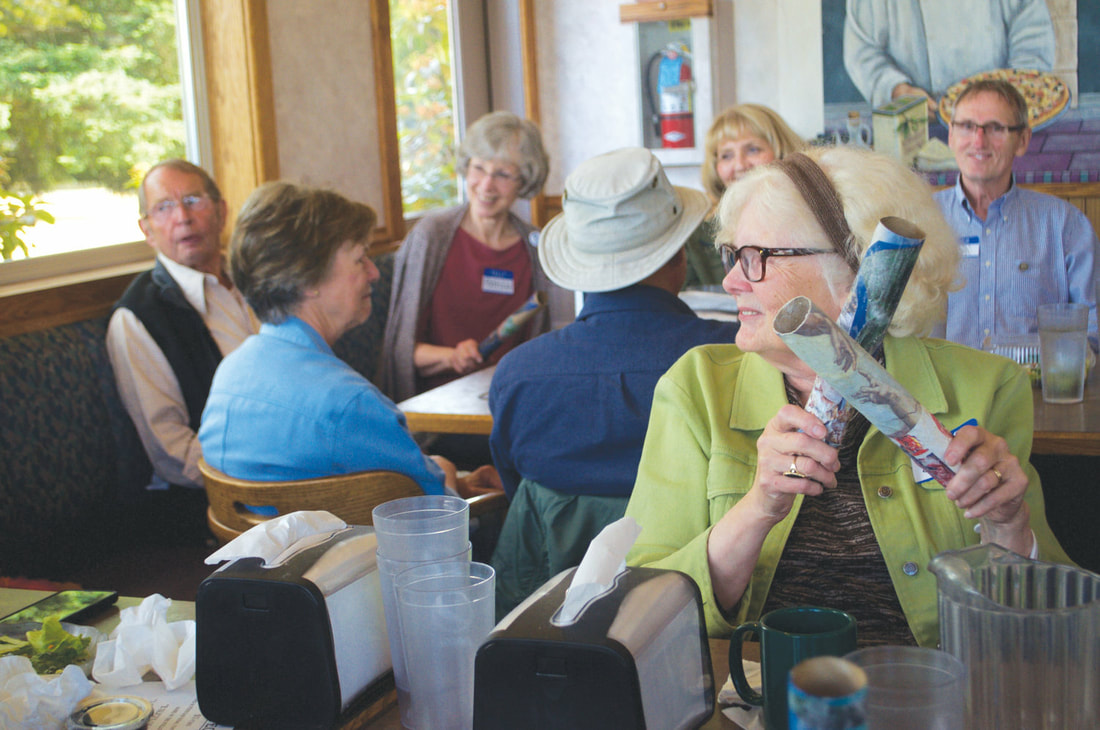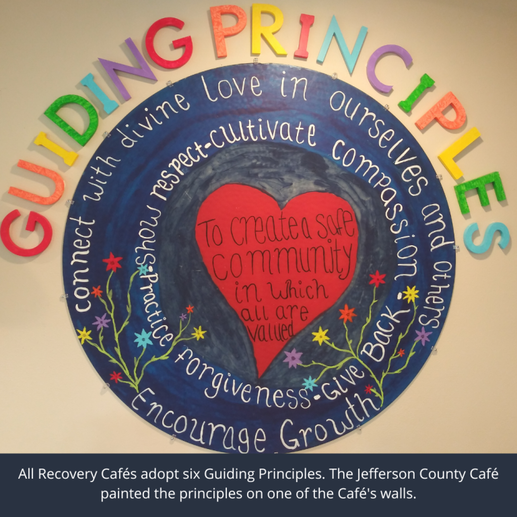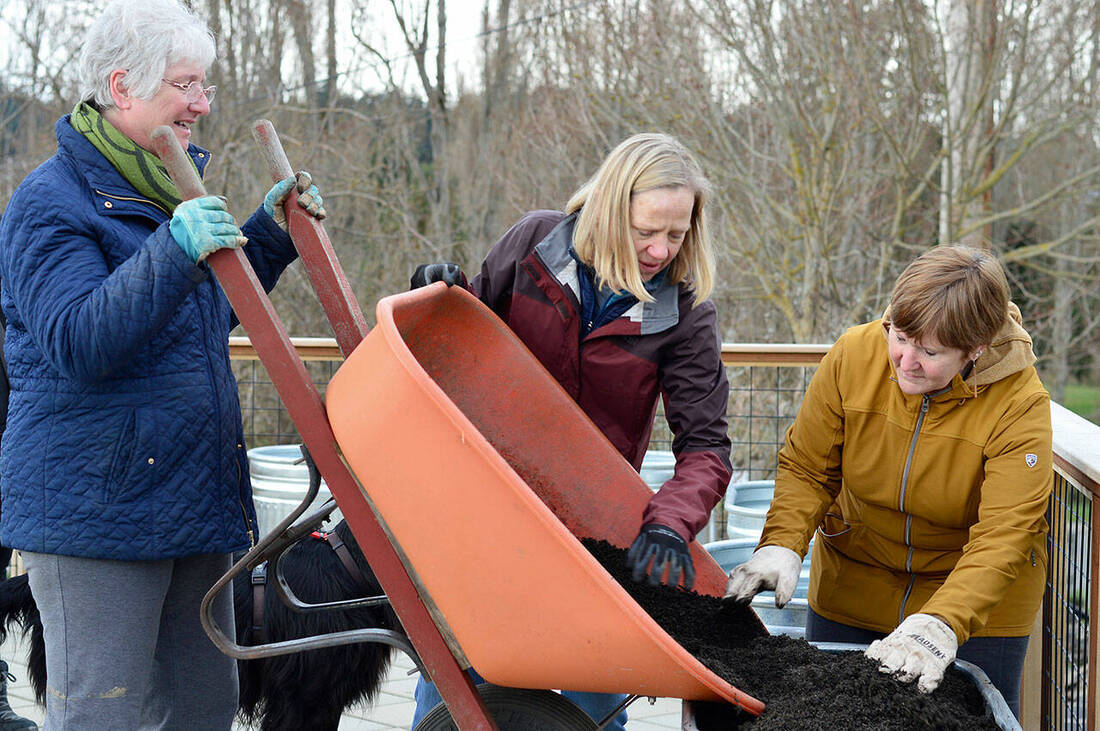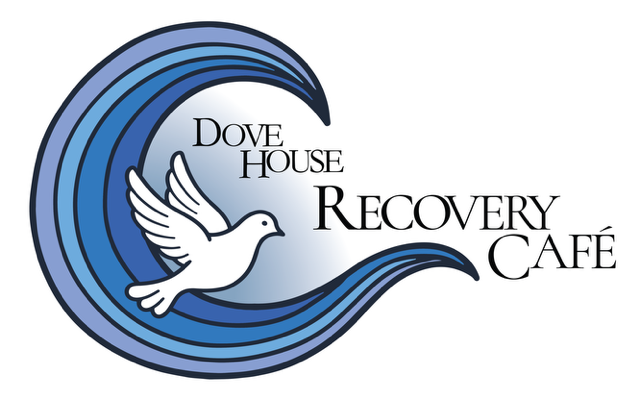|
The bard of Port Townsend | Port Townsend Leader (ptleader.com)
First came an email, next a voicemail, then more email, including forwards from other people who work at The Leader: Laura Martin, long- time resident of Port Townsend, had passed away. It was the kind of outreach that more generally follows a muckety muck, perhaps a city official or the CEO of a top employer — someone who played a role that had a big impact on the community. The role Laura C. Martin, 73, played was herself, a talented, eccentric character who saw boundaries as blurry, if she saw them at all. It was the kind of outreach that says as much about Port Townsend as it does about Martin, who had lived here 42 years when she died June 6. The bard of Port Townsend | Port Townsend Leader (ptleader.com) A tribute to Laura Martin — The Jefferson County Beacon (jeffcobeacon.com)
By Charlie Bermant Laura Martin was everywhere. There were the usual places, like the Farmers Market and Concerts on the Dock. She also turned up at smaller gatherings, especially when they had anything to do with music or dancing. Laura, 73, died on Friday, June 7, after a night filled with song, stories, and dance. A neighbor discovered her body that morning, at which time she could not be revived. There were two major community events in the days after her death, Pride Day and the Race to Alaska kickoff. While hundreds of people were present, locals sensed something missing as Laura wasn’t there. Read more A tribute to Laura Martin — The Jefferson County Beacon (jeffcobeacon.com) Recovery Cafe hosted staff from OlyCAP and other local organizations that participated in the nationwide Point In Time count of sheltered and unsheltered people experiencing homelessness. Leader file photo By Kirk Boxleitner
Even before Jefferson County’s portion of the 2024 nationwide Point In Time count was completed, members of the Olympic Community Action Programs, or OlyCAP, were already taking stock of the early returns. Each year, the count provides a snapshot of the number of sheltered and unsheltered people experiencing homelessness at a single “point in time” in January. OlyCAP Housing Coordinator Jim Funaro emphasized that while any official determinations would be premature prior to the count’s completion, he did notice a number of people he’d previously met as fellow volunteers are now among the unhoused. “It feels like some folks who might have been considered middle-class before COVID could have run out of resources recently,” Funaro said. “There are a number of both broader and more local factors at work, from the economy as a whole, to personal incomes and the affordable housing market in particular.” The Jan. 26 midday meal served by the Recovery Cafe of Jefferson County, just down the hill from the Port Townsend Food Bank, was attended by Funaro, Consolidated Homeless Grant Coordinator Kari Massey, and OlyCAP Youth and Community Engagement Coordinator Zachary Cawley-Clark. An OlyCAP member for three years, Funaro estimated between 25-30 volunteers took part in conducting the count from Jan. 25-31. Those volunteers included Dove House Advocacy Services and Bayside Housing Services, as well as the REAL (Recovery, Empowerment, Advocacy, Linkage) and LEAD (Law Enforcement Assistance Diversion) teams. “We’ve also got Discovery Behavioral Healthcare involved,” Funaro said. “Because we’re a rural county, we can’t just go to the clusters of services you’d find in a more urban community. We need to go out to where each of the various groups of unhoused folks might be. Fortunately, each of the organizations participating in the Point In Time count already interacts with those folks in different ways, so they can meet them where they are.” Funaro noted that OlyCAP works with clients trying to obtain housing, while Dove House works with those who have experienced domestic violence, and LEAD works with those who have had dealings with the legal system. “There are the folks who bed down at the American Legion Hall, while for others, the volunteers have to seek out their encampments,” Funaro said. “We have four different food banks throughout Jefferson County, from Brinnon and Quilcene to the Tri-Area and Port Townsend, but they have different distribution days during the week. That’s why we need a week to do our count, rather than a single day.” Cawley-Clark, who’s been involved with OlyCAP for just a handful of months, was struck by how geographically widespread the problem of homelessness is, although he was significantly less surprised by how much of a stigma is associated with public assistance for younger generations, such as his own. “No one should regard being counted in the Point In Time as an admission of weakness,” Cawley-Clark said. “Because of the stereotypes that are perpetuated about younger people not being as independent, many of us don’t want to admit when we need help. But by agreeing to be counted, those who are unhoused can help others, because obtaining an accurate count of the county’s homelessness can generate more funding for programs to address such problems.” Cawley-Clark and Funaro agreed that, even if someone might believe they fall outside of the parameters for organizations such as OlyCAP, those people should nonetheless explore the assistance options available to them. Funaro also expressed enthusiasm for further developing partnerships between organizations such as OlyCAP, Dove House and the Recovery Cafe, so that they might work together, not only to respond more effectively to issues related to homelessness, but also to help prevent many types of homelessness from occurring in the first place. “I like it here,” Funaro said, as he enjoyed his lunch at the Recovery Cafe. “Here, you’ll find food, laughter, company and acceptance.” Funaro’s initial impressions of this year’s count indicated that both younger and older people have been more susceptible to homelessness, with a number of younger folks turning to “couch-surfing” to keep a roof over their heads. He and Massey expressed their appreciation to volunteers and the community as a whole for their engagement. Massey pointed out that the Jefferson County branch of the Olympic Peninsula YMCA and the state Department of Social and Health Services likewise seek to remedy issues related to housing insecurity. OlyCAP works with landlords to try to prevent late rent payments from sending tenants to the streets. “We all live in a beautiful part of the country here, but too many of us are only a paycheck or two away from becoming homeless ourselves,” Massey said. “It could be a car wreck, or even just extra expenses. What the Point In Time count does is help us measure the demographics of this problem, which is bigger than just our community.” The OlyCAP members were joined at their lunch table by Charles Little, who is all too familiar with these factors firsthand. Little works in the construction industry, and previously lived in the area before moving away. Although he gained employment during his time away, Little lost his job after returning to the area. With a count of theft on his record, he admitted it’s been difficult to get hired since. “Your past catches up with you,” said Little, whose trailer home was stolen, forcing him to sleep in his truck with his dog, whom he estimated eats “about a third of what I eat.” “All walks of life can become homeless,” he said. “Nobody knows everyone’s backstories. What matters is what we’re willing to do to help each other out.” https://www.ptleader.com/stories/point-in-time-count-meets-homelessness-firsthand,156100
Masks are encouraged for in-person attendees.
It will also be streamed live at https://trinityumcpt.org, where participants can find a link for the Candlelight Concerts Online and ways to donate. The concert will be simulcast on KPTZ FM 91.9. Admission is free, with a suggested donation $15 per person. Half the proceeds will go to The Recovery Café, a non-profit program of Dove House Advocacy Services of Jefferson County located at 939 Kearney St. in Port Townsend. The Recovery Café is a member the Recovery Café Network, a nationwide model of recovery peer support. Some of its goals are to maintain an alcohol- and other drug-free environment, conduct recovery circles, and work to end oppression of racism and support human rights. The Jameses will perform a “Mixed Bag” — a collection of songs which cover different eras and styles. They have performed to a variety of audiences in concerts, festivals and private venues in the Northwest and internationally for more than 25 years. Their broad musical styles range from the traditional, to 1940s through 1980s. Their music has influences from folk, blues, jazz, maritime and includes originals. They will be accompanied by Bruce Cannavaro on bass. Mike James is a retired educator/counselor who grew up in Michigan and moved to Seattle in 1983. Val James, whose mother sang with Bing Crosby on the radio and in films, recently released a CD, “Just Makin’ It Up,” which includes all original tunes. https://www.peninsuladailynews.com/entertainment/mike-and-val-james-highlight-candlelight-concerts-series/ The Recovery Café is a great place for a warm lunch from Tuesday to Friday, 12-2:00 pm. The lunches use many donated ingredients from local farms and the Food Bank gardens. One favorite recipe that uses a wide variety of vegetables from the gardens is the Any Vegetable Tart. (below) It’s good one to make if you need to use some of those vegetables you aren’t quite sure what to do with.
Karen King is the Recovery Café staff member who manages the kitchen. She works to build strong teams of volunteers for each day. Some of the volunteers are regulars, some are more ad hoc. Karen and the teams plan menus weekly, based on the donated produce from the Food Bank gardens as well as other contributions that Karen acquires from a wide variety of sources. One kitchen volunteer and professional baker, Carol, comes in on Mondays when the café is closed. She bakes bread, cookies, cupcakes, or muffins for the week’s meals. Often, as we cook a meal, we have brainstorm how to make a recipe taste even better, like adding ginger or more salt, or garlic, something to give it more zing. All the volunteers are talented and valued. The recipe below shows you the original recipe, which was written to serve eight people, but at the café we often serve 45 to 50 meals, so Karen has included instructions for how to increase the recipe from the original eight servings to as many as fifty. The Café is a program of the Dove House Advocacy Services. It is a full member of the Recovery Café Network, a nationwide model of recovery peer support. The Café welcomes anyone who is in recovery from something. Besides a meal there are Circles for members to join to get support, yoga, a monthly open mic and other community activities. Join us for a meal! More here www.foodbankgrowers.org/recovery-cafe-and-food-bank-growers
On Dec. 4 a special presentation of the Memory Café will provide a safe, welcoming place for those with early-stage memory loss or memory concerns and those who care for them to come together and share their memories of the holidays. The cafe will take place at an actual cafe--the Recovery Café at 939 Kearney St. from 2 to 3:30.
The mission of the Memory Café, says Laura Cepoi, executive director of the Olympic Area Agency on Aging (O3A), is to “provide a safe, comfortable, engaging environment where people with memory loss and their care partners can laugh, learn, and remain socially engaged with others traveling on the same journey.” She adds that it’s a space where people can come together without fear to share their concerns and questions while enjoying social time with others who understand. “As we face a rapidly aging population,” says Cepoi, “we know that the incidence of Alzheimer's and other forms of dementia will increase, and we need to be proactive in creating spaces that are welcoming and supportive for those facing memory loss and those who love and care for them.” Cepoi added that O3A is in the process of creating a new position that will specialize in dementia awareness, including early diagnosis, as well as providing training for community partners. “It’s crucial that we get rid of the stigma around memory loss and dementia,” she said, “because it interferes with people getting the help they need as early as possible. There’s no shame in memory loss. We can all be better educated about how to notice the signs and what to do once a person is diagnosed and begins that journey.” Those interested in attending should RSVP to Jan at 360-344-3013. Coffee and tea will be provided. Guests are welcome to bring a light snack. Cepoi notes that the Memory Café is not appropriate for those with more advanced care needs, such as wandering, incontinence, a high degree of anxiety, significant mobility issues, or aggressive behavior. Wednesday, November 1, 2023
Trinity United Methodist’s Candlelight Concerts hosts Kozmopolis, a local folk music group. The performance at the church is scheduled for Thursday, Nov. 16 at 7 p.m. for one set with no intermission. The performance will also be streamed live at https://trinityumcpt.org/concerts where you will find a link for the Candlelight Concerts Online and ways to donate. The concert will also be simulcast on KPTZ FM 91.9. Admission to the concert is free with a suggested donation of $15 per person. Half of the proceeds from will be donated to Recovery Café, a recovery community based on the belief that everyone deserves love and belonging and where a beautiful, safe, warm, drug-and-alcohol-free space exists. Kozmopolis brings poignant and joyful sounds of Eastern European folk music to the Candlelight Concert stage. Featuring Port Townsend couple Mark “Kozmo” Schlenz on violin and Jane Freeburg on accordion with Dan Harrison on bass, listeners can expect rousing dance beats, lyrical waltzes, and evocative melodies from Ukraine, Romania, medieval Spain, and originals continuing the tradition. https://www.ptleader.com/stories/kozmopolis-to-play-free-concert,147011 by Michael Schut, Communications Manager, Recovery Café Network Recovery Café Jefferson County, located in the small town of Port Townsend, Washington, opened at noon. Community members gradually arrived, checked in with Maura at the front desk, and began to find their seats at the tables spread through the light-filled space.
At 12:30 Brian, the Café’s Program Manager, convened the 20 or so of us gathered there by asking, “What do you appreciate about this place?” Without hesitation a man sitting at the table next to me answered, “It’s kind of a sanctuary.” Another offered: “It’s a home away from home.” And a woman seated across from me said, “It’s a family.” Read more here: recoverycafenetwork.org/sanctuary-recovery-cafe-jefferson-county/
|
Categories
All
Archives
June 2024
|



